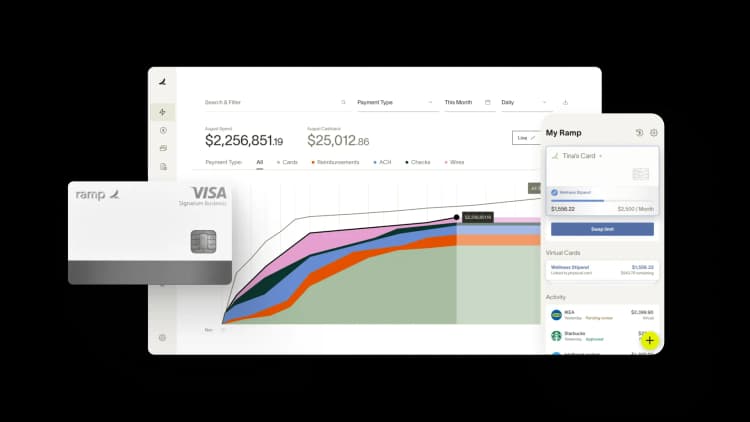What is artificial superintelligence? Definition and where it came form

- What is artificial superintelligence?
- Where did the idea of artificial superintelligence come from?
- How does artificial superintelligence work?
- Does artificial superintelligence matter?
- TL;DR

What is artificial superintelligence?
Superintelligence refers to artificial intelligence systems that would outperform humans across a wide range of tasks and fields. Unlike today's AI, which excels at specific tasks, superintelligent systems would surpass human abilities in areas like:
- Scientific discovery
- Creative problem-solving
- Social reasoning
- Long-term planning and judgment
These systems could also improve themselves over time, potentially triggering a rapid acceleration in capabilities, where machine intelligence quickly exceeds human control or comprehension.
Interest in superintelligence has grown in recent years, partly due to breakthroughs in AI systems like large language models. While these technologies demonstrate advanced reasoning and pattern recognition, they do not yet approach superintelligence, but have made the topic more relevant to new discussions. Researchers, tech companies, and policymakers are now weighing both the potential benefits and risks such systems could introduce.
Where did the idea of artificial superintelligence come from?
Philosopher Nick Bostrom popularized the term in his 2014 book Superintelligence: Paths, Dangers, Strategies. His work, along with contributions from groups like the Machine Intelligence Research Institute and figures like Eliezer Yudkowsky, helped shape the early conversation around advanced AI risks.
These ideas spread through online forums, blogs, and later, social media—eventually gaining traction in academic, policy, and commercial settings. As AI capabilities have advanced, the discussion has become more immediate and actionable, prompting researchers to explore timelines and develop safety protocols for more capable systems.
How does artificial superintelligence work?
True superintelligence doesn’t exist yet. However, researchers and AI labs are actively preparing for its possible development.
Much of this work focuses on AI alignment—making sure future superintelligent systems act in line with human values and intentions. To that end, organizations are exploring technical, ethical, and governance strategies, including:
- Constitutional AI
- Reinforcement learning from human feedback (RLHF)
- Interpretability tools to understand how models make decisions
Companies like OpenAI, Anthropic, and DeepMind run extensive evaluations on advanced models before release—testing for behaviors that could indicate emerging capabilities or misalignment. These evaluations inform both internal safeguards and broader governance frameworks that could apply if superintelligence becomes a reality.
Does artificial superintelligence matter?
If realized, superintelligence could transform how businesses innovate, operate, and make decisions. These systems might:
- Accelerate R&D cycles
- Optimize large-scale operations
- Solve complex challenges in logistics
For companies, understanding the development path of superintelligence can shape long-term strategy. Teams that recognize both the opportunities and the risks are better equipped to adopt AI responsibly—maximizing value while maintaining oversight and control.
Superintelligence awareness can also influence planning across departments. Product teams can design with AI disruption in mind; marketing teams can prepare for shifts in how customers engage with technology; finance and operations can factor AI scenarios into risk models and forecasting.
TL;DR
Artificial superintelligence refers to advanced AI systems that could outperform humans in a wide range of tasks and fields. While the concept remains theoretical, it is increasingly considered in planning for future technological and governance challenges.
Staying informed helps your team anticipate AI shifts, navigate adoption thoughtfully, and build resilience into how your business operates.

“In the public sector, every hour and every dollar belongs to the taxpayer. We can't afford to waste either. Ramp ensures we don't.”
Carly Ching
Finance Specialist, City of Ketchum

“Ramp gives us one structured intake, one set of guardrails, and clean data end‑to‑end— that’s how we save 20 hours/month and buy back days at close.”
David Eckstein
CFO, Vanta

“Ramp is the only vendor that can service all of our employees across the globe in one unified system. They handle multiple currencies seamlessly, integrate with all of our accounting systems, and thanks to their customizable card and policy controls, we're compliant worldwide. ”
Brandon Zell
Chief Accounting Officer, Notion

“When our teams need something, they usually need it right away. The more time we can save doing all those tedious tasks, the more time we can dedicate to supporting our student-athletes.”
Sarah Harris
Secretary, The University of Tennessee Athletics Foundation, Inc.

“Ramp had everything we were looking for, and even things we weren't looking for. The policy aspects, that's something I never even dreamed of that a purchasing card program could handle.”
Doug Volesky
Director of Finance, City of Mount Vernon

“Switching from Brex to Ramp wasn't just a platform swap—it was a strategic upgrade that aligned with our mission to be agile, efficient, and financially savvy.”
Lily Liu
CEO, Piñata

“With Ramp, everything lives in one place. You can click into a vendor and see every transaction, invoice, and contract. That didn't exist in Zip. It's made approvals much faster because decision-makers aren't chasing down information—they have it all at their fingertips.”
Ryan Williams
Manager, Contract and Vendor Management, Advisor360°

“The ability to create flexible parameters, such as allowing bookings up to 25% above market rate, has been really good for us. Plus, having all the information within the same platform is really valuable.”
Caroline Hill
Assistant Controller, Sana Benefits



